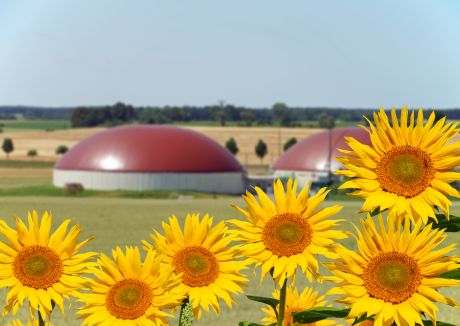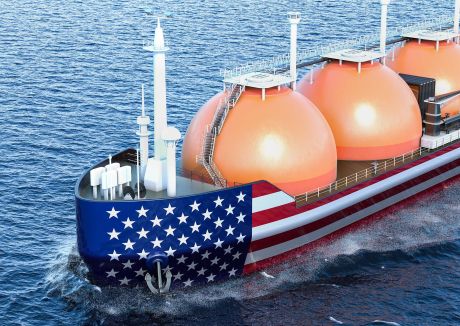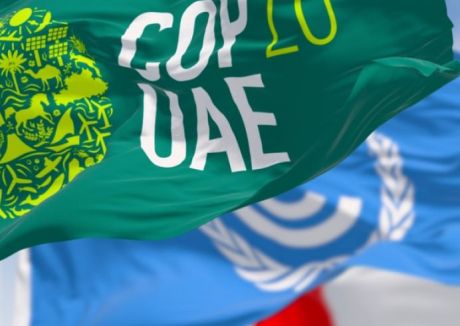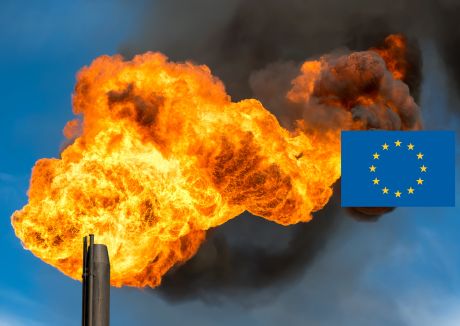Mid-tier indigenous firms stand to gain the most from the IOCs ‘reshuffling’ their African assets, thanks to their deep local knowledge and government relationships, but there are hurdles to overcome in sourcing investment and securing the most commercially viable deal.
Sub-Saharan Africa, in particular the Niger Delta, is experiencing a shift within its gas sector as indigenous independents are acquiring various long-standing onshore assets from IOCs, which have been plagued with security and regulatory threats for decades. Majors including Shell and ExxonMobil have for a handful of years been exiting the upstream projects they have deemed as no longer financially viable. The move has helped to establish favourable circumstances for local players to leverage their technical knowledge and, crucially, their relationships with governments and regulators within the region.
More mature markets like the North Sea have seen a similar trajectory in recent years, becoming a sector now populated by independent operators. The Financial Times reported in April 2021 that private companies’ share of UK oil and gas production reached nearly a third in 2020 – up from just 8% a decade ago. While data from Rystad Energy revealed private companies’ collective share of production reached 30% in 2020 versus 13% in 2014 and 8% in 2010.
Some have dubbed the trend an exodus by long-standing majors, while others insist it is merely a ‘reshuffling’ of portfolios as assets mature and net-zero and energy transition pledges loom. “It’s popular for people to say IOCs are exiting Nigeria but they aren’t,” says industry expert Michael Weston, who has extensive experience in the region. “It’s essentially a rebalancing of their portfolios, which traditionally in Nigeria were concentrated in onshore and shallow offshore areas in the Delta area. Increasingly, people then moved into the deep offshore as the technology allowed.”
Local firms are bidding for legacy assets with well-established operations and technical viability, as well as years of remaining production capacity. A May analyst note from energy intelligence platform Welligence said it believes there is an opportunity for Nigerian independents and other Africa-focused players to partner and create stronger entities within the region. But new entrants will be contingent on the creation of an investor-friendly environment.
"These more mature assets can be operated for a higher economic value by smaller companies," says Gas Strategies managing consultant Chris Levell. "When approaching an acquisition opportunity like this, firms should consider the life of production and volume of reserves left within the asset. As well as who will take on the risk once the asset is ready to be decommissioned. Part of the negotiation is around what happens to the asset at the end of its life. There is also a question of whether there is an opportunity around the energy transition – depleted fields may have a value for other uses such as CCS."
The question of who stands to gain the most from the offloading of these gas fields is an interesting one. Founder of Africa Bridge Capital Management Clement Aghayere believes the answer is mid-tier local players like Nigerian independents Seplat and Sahara Energy, both of which have substantial local track records and diversified businesses. “For a Nigerian company, Sahara Energy stands a better chance of gaining international acceptance and approval than others,” Aghayere notes.
Weston also acknowledges there is scope for any entity with the skills and knowledge of how to work with local governments and banks to benefit from this transition, as the technical expertise can easily be transferred from existing operations. “If you look at, say Seplat, it’s likely around 30% ex-Shell workers so there’s no shortage of technical ability in Nigeria as far as dealing with the oil and gas sector is concerned,” Weston says.
“Seplat has already had some considerable success and is in it for the long haul. It’s likely prepared for the inconvenience, the delays and the costs of the broken bidding process, while others would likely not bother,” he adds.
New kid on the block
Elsewhere, African oil industry newcomer Afentra has largely based its business model around the opportunity to acquire offloaded assets from exiting IOCs. The firm is made up of various former Tullow Oil execs with long-standing experience in exploration and production across Africa and South America.
Afentra CEO and ex-Tullow chief Paul McDade told the Financial Times in May 2021 that Africa presented a compelling market dynamic for agile and innovative consolidators as incumbent operators like Shell and ExxonMobil sold off parts of their decades-old upstream assets.
Speaking to Gas Matters, Afentra CFO Anastasia Deulina says McDade witnessed first-hand how mature assets could be operated by the independent sector during his time in the North Sea with Eni Lasmo between 1999 and 2001. “We’re seeing the early days of that happening in West Africa, which has been influenced by the trends on climate change by the likes of Shell, BP and others, who are under tremendous pressure to rationalise their portfolios away from oil and gas,” says Deulina.
Afentra is in the process of completing an acquisition with Angolan national oil company Sonangol, increasing its stake in the producing shallow-water Block 3/05 in the Lower Congo Basin from 4% to 24% (non-operated) for an upfront consideration of USD 80.5 million (USD 50 million contingent payments structured in addition).
The transaction also includes a 40% non-operated interest in the deepwater exploration Block 23 which contains a pre-salt oil discovery in the Kwanza Basin. Afentra also holds a 4% interest in the development Block 3/05A which surrounds Block 3/05. “That will be all funded through a combination of cash from our balance sheet and debt which we raised through Trafigura in combination with the Mauritius Commercial Bank, they’re already active in the sector but are becoming more prominent,” says Deulina. The company leans heavily on McDade’s long-standing reputation in sub-Saharan Africa.
While there is clearly an opportunity for independents like Afentra, indigenous players face a challenging funding landscape in many of the continent’s struggling economies. “Indigenous companies have access to international capital, but it takes time, and considering the current climate from a macroeconomic standpoint, raising money for a local company, which doesn’t have a pre-existing track record or substantial balance sheet in an emerging market is challenging,” Aghayere explains.
Add to that a hugely complex bidding process, with firms at the mercy of local governments. “There are plenty of examples where deals haven’t been completed because there was just not enough emphasis on how to position the sale with the regulators and the government,” says Deulina. “Every time the IOCs run a process we look at the list of who the potential buyers are, and it is not usually very big. There are very few in this game at the moment.”
“Some governments have lists of preferred acquirers and you need to be mindful of that as a seller. It’s a combination of financial, technical, ethical and other standards that apply. We were just a party to a process where all the bids were very close to each other,” Deulina divulges. “Ultimately, the buyer was chosen on the basis of who the government thought would be able to complete a transaction with the highest certainty.”
For those that do have local government relationships and a deep understanding of the market, the opportunity for profiting from offloaded assets is meaningful. “Our knowledge of local governments has come through decades of operating in this region [as Tullow had existing exploration blocks in Angola.] It’s something that you have to nourish over a long period of time,” Deulina adds.
Deals in motion
Shell has been divesting its Nigerian offshore assets since the mid 2010s, including its 30% shares in four oil blocks in the Niger Delta via subsidiary Shell Producing Development Company. In its 2019 Investors Handbook, Shell said it had faced serious sabotage and theft at its Nigerian sites, noting the adverse impact these issues have had on its operational performance, earnings, cash flow and financial position.
However, the major’s efforts hit a roadblock in June last year due to a Supreme Court ruling regarding an appeal over a 2019 oil spill suspended its plans to sell. In its Q1 ‘23 earnings Shell CFO Sinead Gorman told analysts the company still stood behind its intention to exit from the onshore oil side of the business.
“We’re very much focused on those assets where we operate, making sure that we deliver and we’re making sure that we bring the performance up increasingly. That’s what you’re seeing in terms of the results which are outstanding this quarter and allowing us to be able to give those compelling returns to our shareholders as well,” Gorman added. Shell’s total integrated gas and upstream businesses, including its efforts in Nigeria, recorded combined adjusted earnings of USD 7.7 billion for the first quarter of 2023.
Aghayere advised Nigerian player Toilus Investments on its fundraising efforts in a bid for a number of Shell’s oil assets. He notes: “The sum total of these assets was about USD 4.5 billion. We had secured prospective investors and foreign parties that were interested, but we didn’t think our local party would meet the high standards Shell had put in place for an indigenous player to buy the assets.”
Shell required bidders to present local capabilities and competencies from a technical and intellectual IP standpoint. The outcome of Shell’s bidding process is yet to be determined as the process remains stalled at the time of writing.
Similarly, US behemoth ExxonMobil is in the process of selling off its entire offshore shallow water business in Nigeria, dubbed MPNU, to Seplat for USD 1.28 billion plus up to USD 300 million in contingent considerations. The deal was due to close in H2 ‘22 but has faced significant regulatory setbacks including a court injunction blocking the deal by the government-owned Nigerian National Petroleum Company (NNPC).
In its acquisition presentation published in February 2022, Seplat said the deal would add established high-quality, operated assets delivering strong cashflow to its business. It highlighted a significant undeveloped gas resource base to underpin the energy transition and drive domestic and export revenues when developed. The company estimated it would increase its gas reserves by 211 Bcf via the MPNU acquisition.
Seplat has said the acquisition would tie well into the Nigerian government’s ambitions to significantly increase gas production in the area as part of its “Decade of Gas” target. Investor advisory Capital Access Group said in a note from February 2022 that the deal would also help ensure a stable and just energy transition within Nigeria. “It also strengthens and deepens Seplat’s relationship with the NNPC,” the note said.
“The financing is clever, with the offtake facility providing flexibility, and is provided by a syndicate of global and local banks, and commodity trading companies. This lack of equity raise, and the inclusion of an international debt syndicate is a very positive signal that Seplat is in a strong, stable position,” it added.
In its Q1 ‘23 earnings analyst call, Seplat CEO Roger Thompson Brown said the company was waiting for Nigeria’s new president to approve the deal. “Then we’re hoping to get this transaction through. Our view and the seller’s view is that we have the approval, but there is a difference of view from the NNPC, and we need to resolve that. The transaction SPA is in place and the funding is largely ready to go.”
Funding vacuum
Despite independents being well-placed to succeed the IOCs in Africa, some local firms are being hindered by a lack of local investment. “The downside of the IOCs leaving is the vacuum that will be left from a funding standpoint,” Aghayere says. “I've had many assets fall on my desk and many bidders can't even afford to pay the banking fees to raise the money. My fear for the local industry is that a lot of infrastructure, development and financing plans for the asset will not be fulfilled,” he stresses.
However, Seplat and Afentra have clearly shown just how much smaller players stand to gain in Sub-Saharan Africa, should they overcome their regulatory hurdles. “There is scope for any entity with the skills and knowledge of how to work with governments and local banks [to win big in the region’s gas sector],” Weston explains.
"Investors are wanting to get into this space," says Levell. "However they need to determine the monetisation opportunity, ideally on a more local scale. We are supporting a number of clients looking at the opportunity to anchor gas supplies to creditworthy industrial and indigenous mining companies, particularly considering the growing role of rare-Earth minerals in the energy transition."
We are working with clients seeking to acquire assets across the gas value chain and those seeking to secure gas supplies in Africa and beyond. Please get in touch to see how we can help you.








